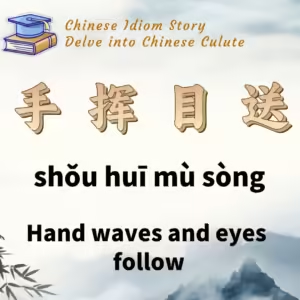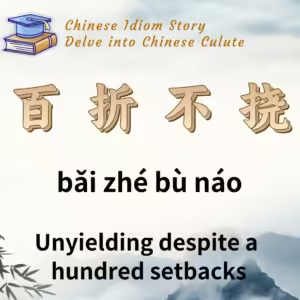
Chinese Idiom: 手挥目送 (Shou Shui Mu Song)
English Translation: Hand waves and eyes follow
pīn yīn: shǒu huī mù sòng
Idiom Meaning: This idiom describes using both hands and eyes skillfully and effectively, suggesting that one handles a situation with ease and precision, as if their actions and observations are perfectly coordinated.
Historical Source: This idiom originates from the poem “赠秀才入军” (Zèng xiùcái rù jūn) by Ji Kang during the late Three Kingdoms period.
Idiom Story
Ji Kang, styled Shuye, was a renowned scholar from Qiao County in the late Three Kingdoms period, known for his intellectual achievements and association with the “Seven Sages of the Bamboo Grove.” He had married into the Cao Wei royal family and had served as a middle-ranking official in Wei, earning him the title Ji Zhongsan.
Ji Kang was known for his integrity and arrogance, embracing Taoist philosophies and opposing hypocritical rites and formalities. Politically, he resisted the Sima family’s usurpation of the Cao family’s power, which led to his persecution and eventual death.
The poem “赠秀才入军” (Eighteen Poems), written by Ji Kang, was a collection given to his brother Ji Xi. Ji Xi, who was a mediocre person, joined the army to support the Sima family during a political upheaval, which Ji Kang opposed. Despite their differing political views, Ji Kang still held a complex affection for his brother, who had raised him.
In the poem, Ji Kang imagines his brother leisurely hunting and playing the zither during military rest periods, reflecting his nostalgic feelings. The lines “目送归鸿,手挥五弦” (mù sòng guī hóng, shǒu huī wǔ xián) are particularly admired for their vivid imagery. The phrase has since been simplified and used as the idiom “手挥目送,” highlighting the skillful coordination of hands and eyes.






